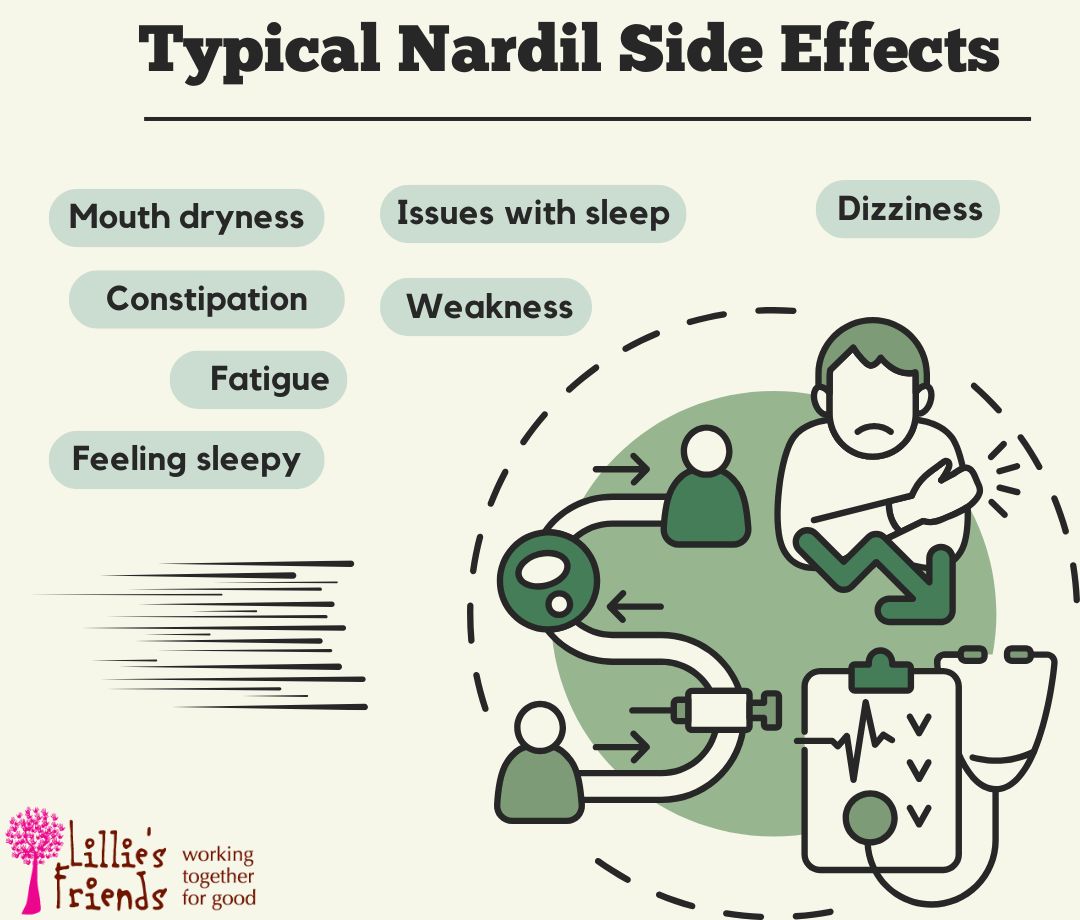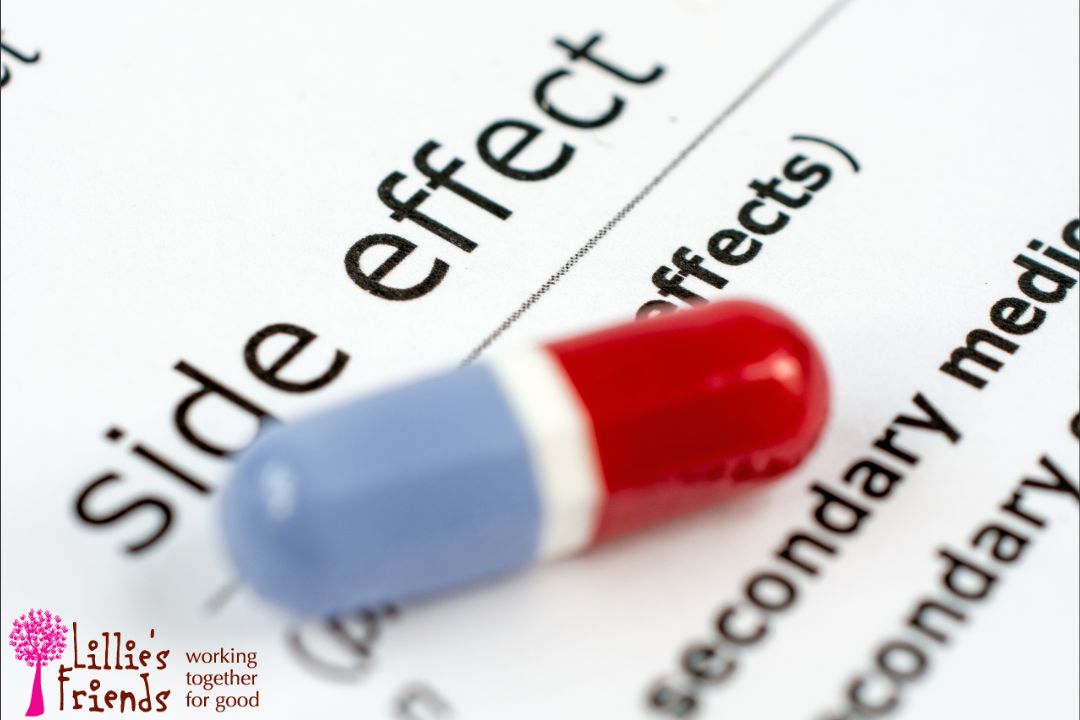Medical Disclaimer
The medicines listed on this website are only there to give you knowledge. Just because they are on the list doesn’t mean that anyone will be given them; in the end, treatment decisions are up to the healthcare workers. The medicines on this list are not all of them. Doctors may recommend other drugs, even ones that don’t contain stimulants, depending on the patient’s specific health needs and circumstances.
The most prevalent mental ailment in the world is depression. 3.8% of people worldwide, including 5.7% of those over 60, suffer from depression, according to the WHO↗. Women are more likely than males to be affected by this condition, which currently affects over 280 million people worldwide.
For what purposes is Nardil used?
Monoamine oxidase inhibitors (MAO inhibitors) are the family of drugs that includes Nardil. Depression is treated using this drug. Phenelzine is the generic name for Nardil.
The medicinal medication worksto bring the natural chemical balance of the brain (neurotransmitters) back to normal. It will assist the individual in controlling their emotions and ideas. It can be taken by a patient either alone or in combination with other drugs. When other medications don’t work as planned, the doctor will usually suggest using Nardil.
Nardil Side Effects
Nardil has adverse effects much like any other medication. After determining that the advantages of phenelzine exceed the hazards, a doctor will often prescribe it. Among the typical adverse consequences are:
- Lightheadedness
- An unsettled stomach
- Constipation
- Sleeping disorders, or insomnia
- Weakness in the body
- Exhaustion
- Urination issues
- Dry mouth
Patients notify their doctor right away if they encounter or exhibit any of these serious symptoms:
- Nervousness
- Queasy
- Throwing up
- Quick heartbeat
- Strange actions or ideas
- Panic episodes
- Suicidal ideation
- Anger and animosity
- Issues with vision, such as light sensitivity
- Pain in the chest
- Quick weight increase
- Dizziness and fainting.
Mechanism of Action of Phenelzine
Depression may be brought on by an imbalance of monoamines, which are substances in the brain. An imbalance results from the breakdown of the monoamine by a substance called monoamine oxidase.
A strong monoamine oxidase inhibitor (MAOI) is phenelzine, also known as Nardil. By blocking the breakdown of monoamines by monoamine oxidase, it raises brain monoamine activity and alleviates depression. The medication enables neurotransmitters such as serotonin and dopamine to have enduring effects on the receptors.
Phenelzine often takes two to four weeks to begin producing clinical effects. The patient’s development is tracked by the doctor, who will up the dosage if there is no improvement after six to eight weeks.

Phenelzine Dosage (Nardil)
Starting dosages for Nardil vary from 15 mg pills every other day to 30 mg tablets three times a day, as directed by a physician. However, for it to be effective, the dose regimen varies over time and at various stages of treatment.
Depending on the patient’s tolerance to the drug, the doctor can quickly raise the dosage to 60 mg per day. The majority of patients won’t show any improvement until they consistently take the 60 mg dosage for at least four weeks.
To achieve adequate MAO inhibition, the doctor may progressively raise the dosage to 90 mg per day (the maximum daily dose). To make sure the patient doesn’t overdose, they must exercise caution.
The doctor or pharmacist progressively lowers the dosage over a few weeks after the patient has the most benefit from Nardil. This step is referred to as the maintenance dose phase, during which a daily dosage of as little as 15 mg is maintained for however long is required.
Avoiding Certain Foods While Taking Phenelzine
When used with MAOIs, foods high in the amino acid tyramine might cause a serious response. Tyramine levels can rise during prolonged storage of dietary supplements or drinks.
Since the body breaks down all of the tyramine using the MAO enzyme, taking MAOIs blocks the enzyme, which permits the body to produce significant amounts of tyramine. It causes blood pressure to rise, which might result in other health issues like:
- Kidney damage
- Stroke
- Eye condition
- Heart attack
For this reason, a person on Nardil should avoid eating tyramine or dopamine-containing meals, as well as stale or mature foods, like:
- Expired fish, meat, or poultry
- Avocados
- Caffeine
- Meat and fish that have been aged, smoked, pickled, or cured
- Cheese
- Yeast extracts (Bovril, Oxo, and Marmite)
- Milk without pasteurization
- Buttermilk
- Probiotics
- Products made from fermented soy beans
- Shrimp sauce
- Intoxicated or non-alcoholic wines, lagers, or beers
- Concentrated yeast
- Fish sauce
- Peels from bananas
- Fermented foods
After stopping the medicine, the patient should continue to abstain from certain meals for two weeks.
They should avoid protein-containing foods and ingest, swap, or combine fresh foods while taking the Nardil medication.
Contraindications
This medication should not be used by those who have a history of congestive heart failure, liver illness, renal disease, or pheochromocytoma (an adrenal tumor). Additionally, Nardil should not be taken by individuals who are taking sympathomimetic medications like cocaine, amphetamines, or epinephrine. Additionally, it shouldn’t be used with CNS depressants like alcohol and some drugs, as well as dextromethorphan (a cough medicine).
Concluding remarks
Dopamine and Nardil are related because Nardil increases serotonin and dopamine levels via altering brain activity. Nardil is usually prescribed to adults with a diagnosis of depression. However, because some persons experience social disengagement and suicidal thoughts as a result of the medication’s effects, the patient’s reaction to the drug should be closely watched.











